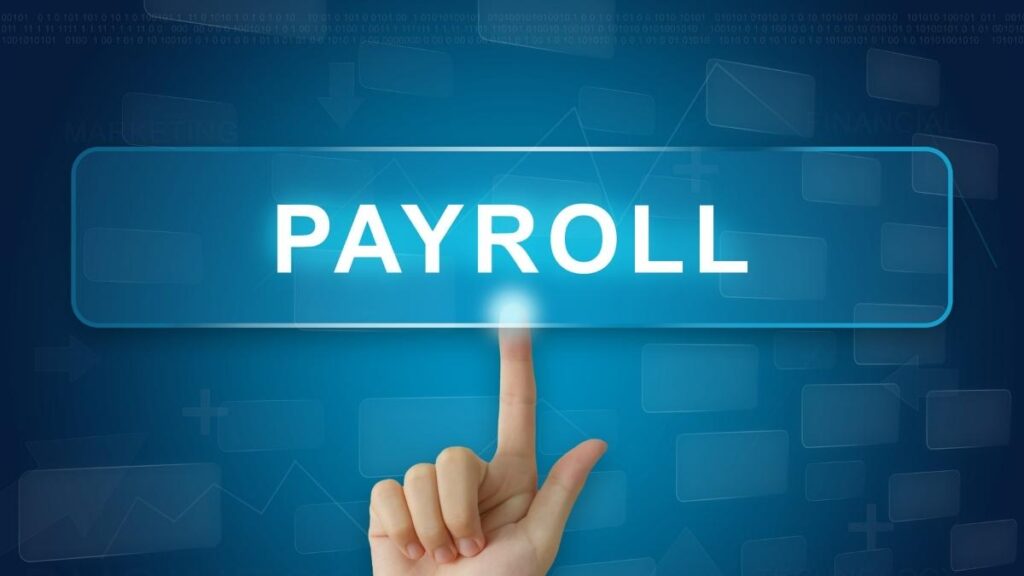
If you’re searching for “what is a credit card abuse charge,” you’re likely trying to make sense of a confusing and scary legal term. Maybe you’ve heard it in the news, or perhaps you’re worried it could apply to a situation involving you or someone close. In simple terms, a credit card abuse charge refers to the illegal use of someone else’s credit or debit card information without their permission, often with the intent to get goods, services, or money fraudulently.
This article breaks it down step by step to help you understand the credit card abuse meaning, what qualifies as credit card abuse, and how it plays out under U.S. law. We’ll cover the legal definition, real-world examples, whether it’s a credit card abuse misdemeanor or felony, potential penalties, and how it differs from general credit fraud. Plus, we’ll discuss steps to take if you’re facing such a charge and answer common questions. By the end, you’ll have a clearer picture of this serious offense and why preventing unauthorized use of credit card charges is so important. Remember, this isn’t legal advice—always consult a professional for your specific case.
What Is a Credit Card Abuse Charge?
A credit card abuse charge is a criminal accusation that someone has misused a credit or debit card in a way that breaks the law. It’s not just about accidentally overspending on your own card; it’s tied to fraud and theft of financial information.
Legal Definition of Credit Card Abuse
Under U.S. law, credit card abuse generally involves the unauthorized taking or use of another’s credit card or its details to make purchases or obtain value without consent. Federal laws, like 18 U.S.C. § 1029, address credit card fraud on a national level, especially if it crosses state lines or involves large-scale schemes. This can include producing counterfeit cards or using stolen numbers. However, most cases are handled at the state level, where definitions focus on intent to defraud—meaning the person knew they were doing something wrong to gain something of value.
The core idea is that it’s a form of theft wrapped in financial deception. For instance, if you use a card knowing it’s not yours and without permission, that’s abuse. Laws emphasize protecting cardholders from losses due to unauthorized transactions.
Common State-Level Definitions (Ex: Texas Penal Code)
States have their own twists on what qualifies as credit card abuse. Take Texas, for example: The Texas credit card abuse law under Penal Code §32.31 defines it as knowingly receiving a benefit from a credit or debit card when the card was obtained fraudulently, expired, revoked, or used without the owner’s effective consent. It also covers selling or buying card info with fraudulent intent. This makes it a specific offense under the state’s fraud chapter.
Other states like Virginia (§18.2-195) describe it as using a card to obtain money, goods, or services with intent to defraud, while Ohio (§2913.21) calls it misuse of credit cards, covering similar acts like forging signatures or using revoked cards. In Arizona, fraudulent use is often a misdemeanor unless the value exceeds certain thresholds. These variations show how location matters—always check your state’s penal code for precise details.
Examples of Credit Card Abuse
To grasp what a credit card abuse charge looks like in real life, let’s look at common scenarios. These illustrate how everyday actions can cross into criminal territory.
Using Someone’s Card Without Consent
One straightforward example is picking up a family member’s or friend’s card and making purchases without asking. Even if you plan to pay it back, if there’s no permission, it could be seen as an unauthorized use of credit card charge. For instance, a roommate swiping your card for groceries because they “forgot” theirs—that’s abuse if done knowingly without consent.
Stealing Card Info to Make Purchases
This includes skimming, where devices capture card data at ATMs or gas pumps, then use it for online buys. Hackers might breach a store’s database and use stolen numbers for fraudulent transactions. A real-world case: Someone finds a lost wallet, notes the card details, and shops online before the owner cancels it.
Possession of Fraudulent Credit Cards
Simply having fake or stolen cards with intent to use them counts too. This covers counterfeit cards produced with embossers or encoders. For example, organized rings create clone cards from skimmed data and sell them—possession alone can lead to charges if fraud is intended.
These examples highlight that intent and lack of consent are key. Accidental swipes rarely qualify, but deliberate acts do.
Is Credit Card Abuse a Felony or Misdemeanor?
The severity of a credit card abuse charge—whether it’s a misdemeanor or felony—hinges on several factors, making it unpredictable without specifics.
Depends on Amount and State Laws
In many states, the dollar value of the fraud determines the level. Small amounts (under $500-$1,000) might be misdemeanors, punishable by fines and short jail time. But larger sums often bump it to felony status. In Texas, credit card abuse is typically a state jail felony regardless of amount, but if it involves elderly victims or higher values, it can escalate to third-degree felony. Federally, it’s almost always a felony if interstate commerce is involved.
How Severity and Past Records Impact the Charge
Your criminal history plays a big role. First-time offenders might get misdemeanor treatment or diversion programs, while repeat offenders face felony upgrades. Aggravating factors like using the card in a scheme or targeting vulnerable people increase severity. In Illinois, for example, it’s often a Class 4 felony but can drop to misdemeanor for minor cases. Understanding if it’s a credit card abuse misdemeanor or felony requires looking at your state’s thresholds and your background.
Penalties for a Credit Card Abuse Charge
Facing a credit card abuse penalty can disrupt your life long-term. Penalties vary, but they’re designed to deter and compensate victims.
Jail or Prison Time
Misdemeanors might mean up to a year in county jail, while felonies can lead to 2-10 years in state prison or more federally (up to 20 years for aggravated cases). In Texas, a state jail felony carries 180 days to 2 years. Probation is possible for lesser offenses.
Fines and Restitution
Fines range from $1,000 for misdemeanors to $10,000 or more for felonies, plus restitution to repay victims’ losses. Federally, the median loss in cases is around $64,000, leading to hefty repayments.
Criminal Record Consequences
A conviction stains your record, affecting jobs, housing, and loans. It can bar you from certain professions and linger for years, even after serving time.
How Credit Card Abuse Differs from Regular Fraud
While credit card abuse and general fraud overlap, there are key differences in credit card abuse vs credit fraud:
- Scope: Abuse is narrowly focused on credit/debit cards, while fraud covers broader deceptions like check forgery or insurance scams.
- Specific Statutes: Abuse falls under targeted laws like Texas Penal Code §32.31, whereas general fraud might use broader theft statutes.
- Use of Physical Card vs Digital Info: Abuse often involves physical cards or numbers, but digital hacks (like phishing) can qualify; general fraud might not need a card at all.
- Intent: Both require intent to defraud, but abuse emphasizes unauthorized card access, while fraud stresses overall deception.
These distinctions affect charges and defenses.
How to Respond If You’re Facing a Credit Card Abuse Charge
If charged, act quickly and smartly:
- Get Legal Representation: Hire a criminal defense lawyer experienced in financial crimes—they can challenge evidence or negotiate pleas.
- Avoid Further Use: Stop any activity that could worsen your case; don’t discuss it online or with others.
- Gather Facts: Collect receipts, communications, or proof of consent to build your defense.
- Cooperate Carefully: Follow police instructions but don’t speak without your attorney to avoid self-incrimination.
Early action can lead to reduced charges or dismissal.
FAQ Section
Is credit card abuse the same as theft?
No, theft involves taking the physical card or property, while abuse focuses on using it fraudulently after acquisition. Theft might precede abuse, but they’re separate charges.
Can credit card abuse be dismissed?
Yes, possibly—if evidence is weak, it’s a first offense, or through pretrial diversion. A lawyer can argue lack of intent or mistaken identity.
Does accidental use count as abuse or fraud?
No, accidents like using the wrong card at checkout don’t qualify, as laws require knowing intent to defraud. Honest mistakes are usually resolved civilly.
Read also- Is Using Someone Else’s Credit Card a Felony
Conclusion
In summary, what is a credit card abuse charge? It’s a serious criminal offense involving the unauthorized and fraudulent use of credit or debit cards, defined variably under U.S. federal and state laws like those in Texas. It can lead to hefty penalties, from fines and jail time to lifelong record impacts, and differs from broader fraud in its focus on card-specific misuse.
The key takeaway: Unauthorized card use is no small matter—it harms victims and can ruin lives. Educate yourself on what qualifies as credit card abuse to avoid pitfalls, and if you’re facing charges, seek professional legal help immediately. Staying informed promotes better financial habits and protects everyone in our digital world. If this resonates, share it with others who might need clarity on these issues.

Emma Rose is a U.S.-based personal finance writer and a regular contributor at Cardix.us. She focuses on topics like credit cards, credit scores, and everyday money management. Emma’s writing makes complex financial concepts simple and practical, helping readers make smarter credit and spending decisions with confidence.


